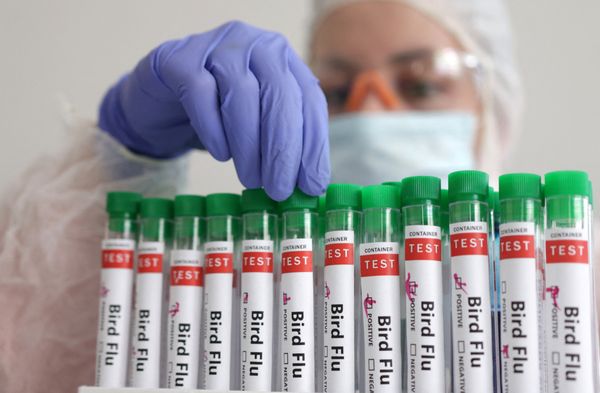
The ministry said 18 out of 21 children who took the Doc-1 Max syrup while suffering from an acute respiratory disease died after consuming it. It is marketed on the company's website as a treatment for cold and flu symptoms.
A batch of the syrup contained ethylene glycol, which the ministry said was a toxic substance. The syrup was imported into Uzbekistan by Quramax Medical LLC, the ministry said in its statement released on Tuesday.
In a statement, Uzbekistan Health Ministry said, “We reported the occurrence of side effects in children as a result of taking the drug Doc-1 Max in the city of Samarkand."
“Tablets and syrup Doc-1 Max manufactured by the Indian company “Marion Biotech Pvt. Ltd" in our country were registered in 2012 and went on sale in the same year. According to the Agency for the Development of the Pharmaceutical Industry, each drug series was tested with the subsequent issuance of a certificate of conformity. This drug was imported into our country by Quramax Medical LLC," the official statement said.
“To date, 18 out of 21 children with acute respiratory disease have died as a result of taking Doc-1 Max syrup," it added.
As per the Ministry, it was found that the deceased children, before admission to hospital treatment, took this drug at home for 2-7 days 3-4 times a day, 2.5-5 ml, which exceeds the standard dose of the drug for children.
“All children were given the drug without a doctor's prescription. Since the main component of the drug is paracetamol, Doc-1 Max syrup was incorrectly used by parents as an anti-cold remedy on their own or on the recommendation of pharmacy sellers. And this was the reason for the deterioration of the condition of patients," it said.
It further added, “In fact, paracetamol should only be used at a body temperature of 38-38.5 C and above 1 or 2 times a day, 100-125 mg for a child under the age of one year, 200 mg for children aged 1-3 years and 250 mg - from 3 to 5 years. At normal body temperature, taking this drug is strictly prohibited."
As per the ministry, preliminary laboratory studies have shown that this series of Doc-1 Max syrup contains ethylene glycol. This substance is toxic, and about 1-2 ml/kg of a 95% concentrated solution can cause serious changes in the patient's health, such as vomiting, fainting, convulsions, cardiovascular problems and acute kidney failure.
It also added that, 7 responsible employees were dismissed from their positions due to the fact that they were negligent and inattentive to their duties, did not analyze child mortality in a timely manner and did not take the necessary measures, also disciplinary measures were applied to a number of specialists.
The ministry said that the collected documents were handed over to law enforcement agencies.
Furthermore it added that, currently, tablets and syrups of the drug Doc-1 Max are withdrawn from sale in all pharmacies of the country in the prescribed manner.
The shortcomings identified on the basis of the study materials, the issue of the responsibility of medical workers will be considered at a separate meeting of the Collegium of the Ministry of Health, it said.
As reported by UrduPoint, a criminal case was initiated against officials of Quramax Medical and State Center for Expertise and Standardization of Medicines under Article 186-3 of the Criminal Code (Violation of the order of retail sale of medicines containing potent substances).
After the ministry's statement, sources in the Central Drugs Standard Control Organisation (CDSCO) told news agency ANI that it will investigate the claim.
In response to an email from ANI, seeking further details on the deaths, an official of the World Health Organisation (WHO) said, "The WHO is in contact with the health authorities in Uzbekistan and is ready to assist in further investigations."
India on Tuesday had launched an inspection of some drug factories across the country to ensure high quality standards.
Gambia incident
Previously, 66 children had died in Gambia allegedly after consuming India-made cough syrups. However, the Gambian government had denied any link between the child deaths and the Indian cough syrups.
On the death of 66 children in Gambia, the Centre had recently informed the Rajya Sabha that the control samples of four cough syrups that allegedly led to the deaths in African country were found to be of standard quality.
Bhagwant Khuba, Union Minister of State for Chemical and Fertiliser, in a written reply to a Rajya Sabha member, said, "As per the report of the Government Analyst, the samples have been declared to be of standard quality. The said samples were also found negative for both Diethylene Glycol (DEG) and Ethylene Glycol (EG)."
"Based on investigations conducted, State Drugs Controller, Haryana issued show cause notice to M/s Maiden Pharma on 7.10.2022 under Rule 85(2) of the Drugs Rules, 1945. Further, an order under section 22(1)(d) of the Drugs and Cosmetics Act, 1940 issued to M/s Maiden Pharmaceuticals Limited, Sonepat, Haryana on 11.10.2022 stopping all the manufacturing activities of M/s Maiden Pharmaceuticals at Sonepat with immediate effect in the public interest," he added further in his reply.
According to an emailed reply by the DCGI on December 13, to Dr Rogerio Gaspar, director, Regulation and Prequalification, WHO, to a letter dated December 6, "(The) WHO had been informed that the samples of these 04 products in question were drawn and sent for testing to Government Laboratory as per extant rules. As per the test reports received from the Government laboratory, all the control samples of the 04 products have been found to be complying with specifications Further, DEG and EG were not found to be detected in these products and the products have been found not to have been contaminated with DEG or EG as per the test reports. These reports have been made available to the aforesaid Technical Committee which is examining them."
"As regards the use of excipients specifically the propylene glycol, it was sourced 7. from M/s Goel Pharma Chem, Delhi which is recorded to have been imported from M/s SKC, 255, Yongjam-to, Nam-gu, Ulsan, South Korea as per COA. Further Glycerine was recorded to be sourced from M/s Goel Pharma Chem, Delhi which was sourced from M/s Adani Wilmar, India. Excipients specifically propylene glycol available at the manufacturing site at the time of inspection were also sampled and tested at Government Laboratory as per rules and were found to be complying with USP (wherein DEG and EG were complying with USP test 2(b), and propylene glycol was not found contaminated with DEG and EG. Further the: for testing at Government laboratory. It has also been found to be complying with IP specifications (wherein content of DEG was found 0.0119 per cent and content of EG was not detected)." the letter further stated.
(With inputs from ANI)







